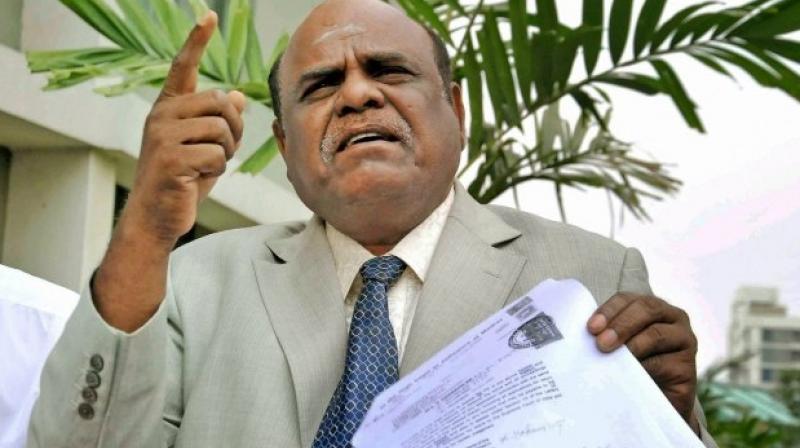Let President decide on Karnan: Lawyer
West Bengal police team is camping in Chennai to execute an order arrest issued by SC against Justice Karnan in a defamation case.

Chennai: Calcutta high court judge Justice C.S. Karnan's lawyer has written to Tamil Nadu and West Bengal police saying that his client had sought legal remedies at the hands of the President of India, invoking Article 72 of the Indian Constitution.
Police should refrain from taking action against Karnan till the President of India disposes of the petition seeking suspension of the sentence awarded to him by the Supreme Court, the lawyer Mathews J. Nedumpara told Deccan Chronicle on Wednesday.
“When an appeal is pending in an upper forum, the order given by the lower forum is eclipsed. So I request the police of the both states to wait till President makes his decision,” Mathews said justifying his letter.
West Bengal police team is camping in Chennai to execute an order arrest issued by SC against Justice Karnan in a defamation case. “As a law abiding citizen, my client intends to extend all cooperation to the police, needless to say without prejudice to his Constitutional and legal remedies,” noted the advocate.
In his letter to the police chiefs of Tamil Nadu and West Bengal, the lawyer said, “Justice C.S. Karnan considers the orders of the Supreme Court as one rendered without jurisdiction and in gross violation of the principles of natural justice and the Constitution. He is hopeful that the injustice done to him will be corrected in the proceedings instituted in the Supreme Court and the Delhi High court, as aforesaid, so too in the Memorandum which he has preferred under Article 72 to the President of India”.
The letter further said that Justice Karnan not only challenges the very constitutional validity of the contempt of courts act, but also the orders of the Supreme Court which removed him from his office, which the President alone was empowered to. “That too upon an impeachment motion, which shall receive the assent of two-third of members of both houses of the Parliament present,” the letter said.
What is Article 72 of the Constitution?
It says the President has the power to grant pardons, reprieves, respites or remissions of punishment or to suspend, remit or commute the sentence of any person convicted of any offence

